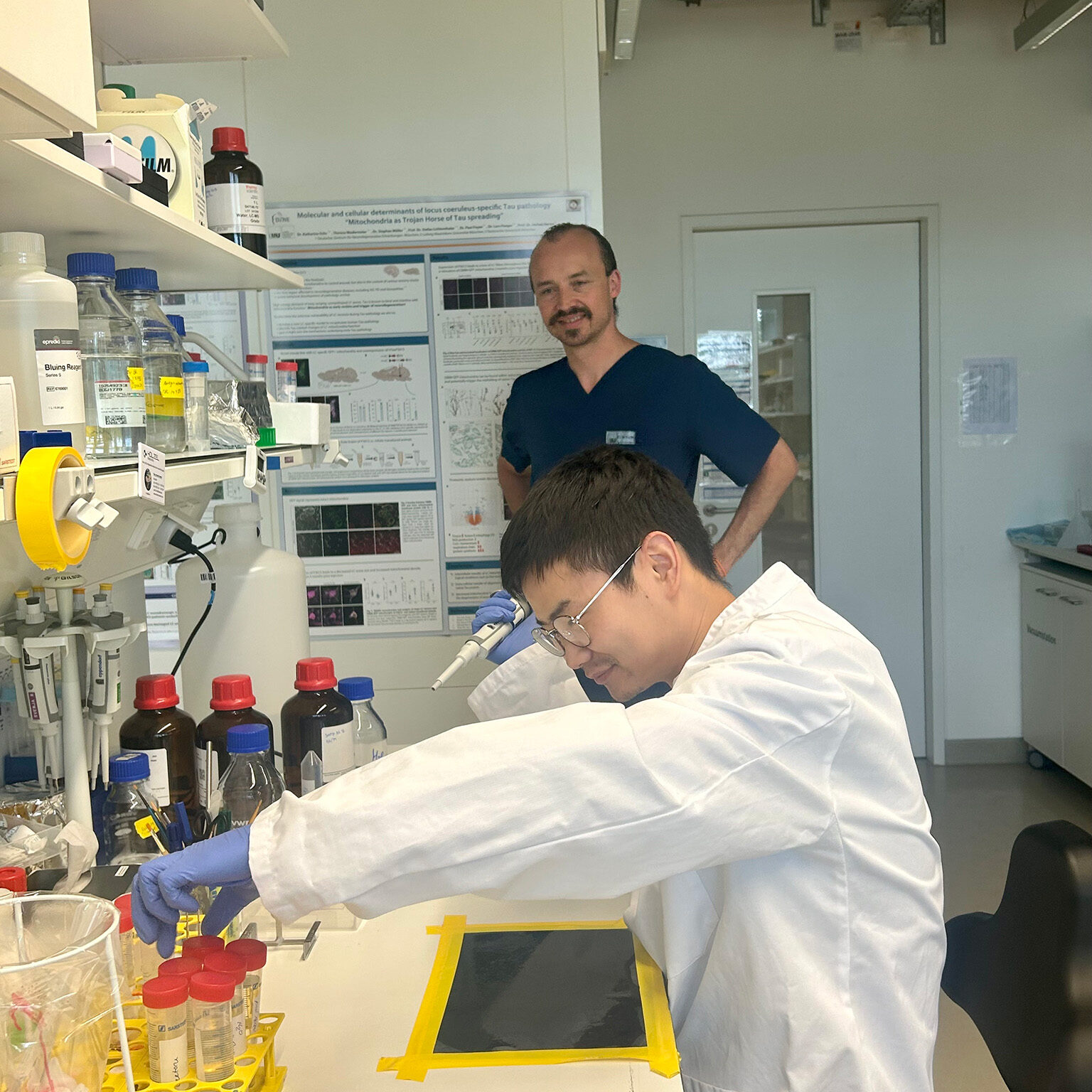Investigating the Role of the Insulin Degrading Enzyme (IDE) in Fragile X Syndrome

Thomas Koeglsperger, MHBA
Principal Investigator
Pan Gao, MSc
FRAXA Fellow
Ludwig Maximilian University Medical School
Munich, Germany
2024-2025 Grant Funding: $100,000
Summary
Growing evidence suggests that Fragile X syndrome could be considered a metabolic disorder, as well as a brain disorder. Multiple FRAXA-funded investigators have found metabolic abnormalities in Fragile X, specifically relating to the hormone, insulin. Insulin regulates metabolism by controlling the body's use and storage of energy during fasting and feeding. It also affects neurotransmitter systems in the brain, which impacts learning and other executive functions.
This team has found significant changes in brain insulin signalling in Fragile X mouse models. With this grant they will unravel how these changes occur and what can be done to address them.
The Science
by Thomas Koeglsperger, MHBA, and Pan Gao, MSc
Our research seeks to identify new therapeutic approaches for Fragile X syndrome (FXS). In FXS, nerve cells experience a deficiency of the protein, FMRP. Our prior investigation has revealed significant changes in brain insulin signalling, particularly in dopamine neurons in FMRP-deficient mice. Notably, we observed a noteworthy increase in insulin-degrading enzyme (IDE), a crucial player in insulin metabolism. These findings imply alterations in brain insulin signalling in FXS, and our current project aims to comprehend the specific consequences of these changes.
Our project has two main objectives:
Aim I explores how FMRP regulates the release and uptake of dopamine in the striatum, a brain region implicated in movement regulation and habit formation. This involves investigating the impact of insulin signalling on dopamine in the absence of FMRP.
Aim II delves into the mechanisms triggering elevated IDE levels in the absence of FMRP, unravelling IDE's role in controlling dopamine turnover in the striatum and the behavioral consequences. By addressing these challenges, we aim to illuminate the molecular intricacies underlying FXS, providing crucial insights into the interplay between FMRP, insulin signalling, and dopamine function.
Our work not only advances our understanding of FXS but also lays the foundation for potential therapeutic strategies targeting these molecular pathways.


